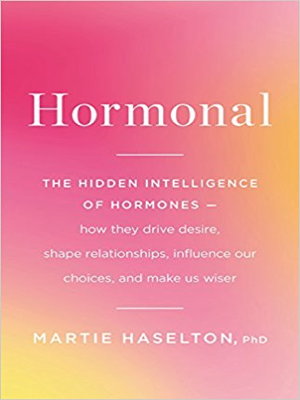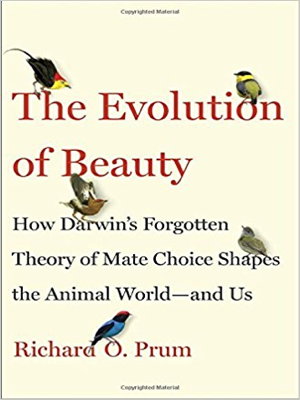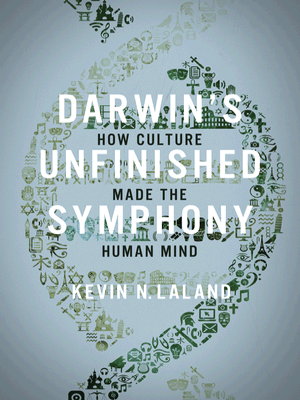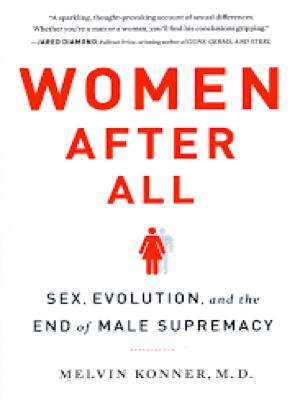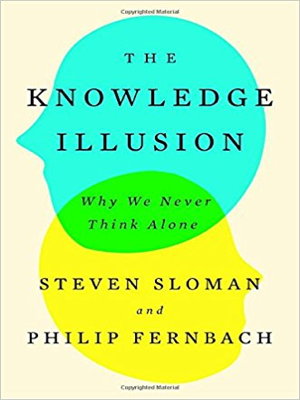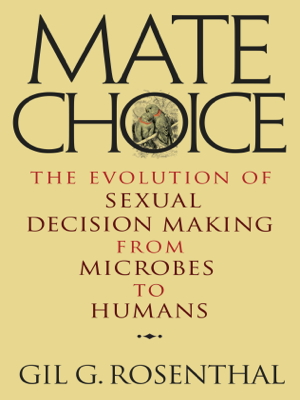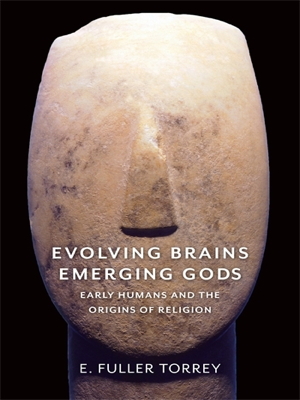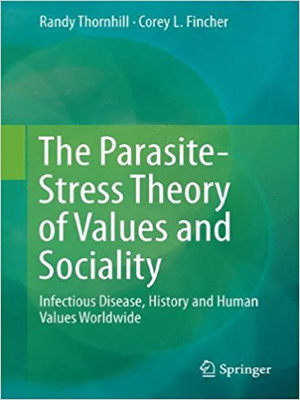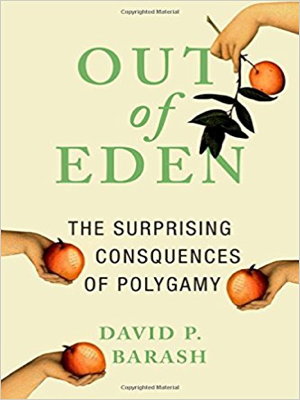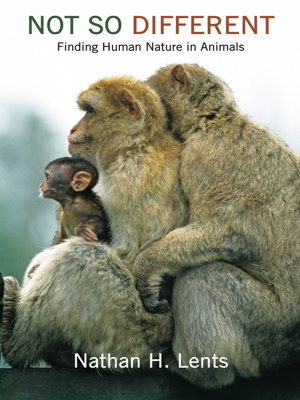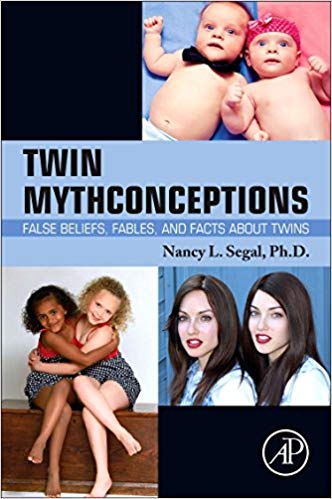 |
Twin Mythconceptions: False beliefs, fables, and facts about twins
Author: Nancy Segal
This book sheds new light on over 70 commonly held ideas and beliefs about the origins and development of identical and fraternal twins. Using the latest scientific findings from psychology, psychiatry, biology, and education, the book separates fact from fiction. Each idea about twins is described, followed by both a short answer about the truth, and then a longer, more detailed explanation.
|
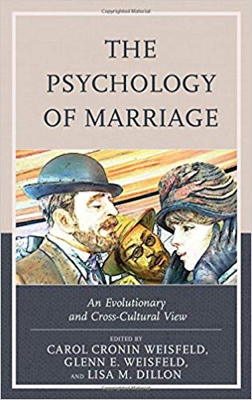 |
The Psychology of Marriage: An Evolutionary and Cross-Cultural View
Author: Carol Weisfeld, Glen Weisfeld, Lisa Dillon
From their location in the heart of Detroit, Michigan, the Weisfelds’ lab has reached out for thirty years to couples in long-term partnerships around the world. In living rooms in Detroit, London, Moscow, Beijing, and beyond, couples of all types and ages have shared their perspectives into adult romantic relationships. The Psychology of Marriage: An Evolutionary and Cross-Cultural View is a distillation of these findings, which have appeared in dozens of book chapters, journal articles, and conference presentations. This book provides new systematic comparisons that offer insights into the mysteries of marriage and other committed relationships.
|
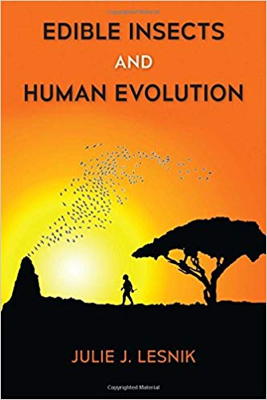 |
Edible Insects and Human Evolution
Author: Julia Lesnik
Researchers who study ancient human diets tend to focus on meat eating because the practice of butchery is very apparent in the archaeological record. In this volume, Julie Lesnik highlights a different food source, tracing evidence that humans and their hominin ancestors also consumed insects throughout the entire course of human evolution.
|
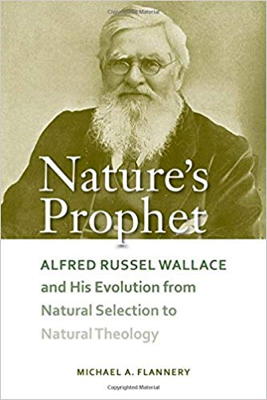 |
Nature’s Prophet: Alfred Russel Wallace and His Evolution from Natural Selection to Natural Theology
Author: Michael Flannery
Nature’s Prophet:Alfred Russel Wallace and His Evolution from Natural Selection to Natural Theology is a critical reassessment of Wallace’s path to natural theology and counters the dismissive narrative that Wallace’s theistic and sociopolitical positions are not to be taken seriously in the history and philosophy of science.
|
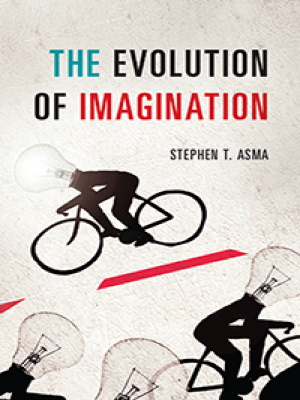 |
The Evolution of Imagination
Author: Stephen Asma
Guided by neuroscience, animal behavior, evolution, philosophy, and psychology, Asma burrows deep into the human psyche to look right at the enigmatic but powerful engine that is our improvisational creativity—the source, he argues, of our remarkable imaginational capacity. Considering everything from how imagination works in our physical bodies to the ways we make images, from the mechanics of language and our ability to tell stories to the creative composition of self-consciousness, Asma expands our personal and day-to-day forms of imagination into a grand scale: as one of the decisive evolutionary forces that has guided human development from the Paleolithic era to today.
|
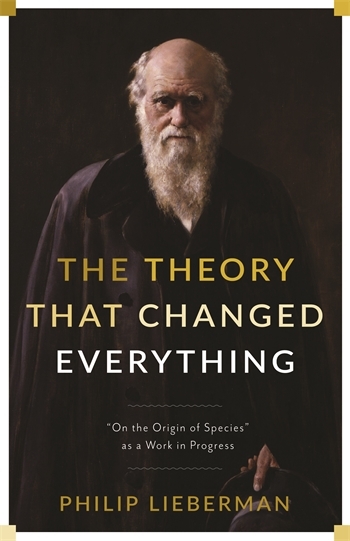 |
The Theory that Changed Everything
Author: Philip Lieberman
On the Origin of Species is more cited than read, and parts of it are even considered outdated.In The Theory That Changed Everything, the renowned cognitive scientist Philip Lieberman demonstrates that there is no better guide to the world’s living—and still evolving—things than Darwin and that the phenomena he observed are still being explored at the frontiers of science. In an exploration that ranges from Darwin’s transformative trip aboard the Beagle to Lieberman’s own sojourns in the remotest regions of the Himalayas, this book relates fresh, contemporary findings to the major concepts of Darwinian theory, which transcends natural selection, while asking provocative questions about what Darwin would have made of controversial issues today, such as GMOs, endangered species, and the God question.
|
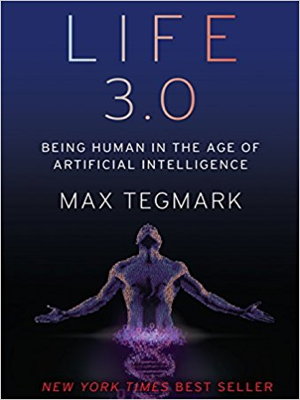 |
Life 3.0: Being Human in the Age of Artificial Intelligence
Author: Max Tegmark
How can we make future AI systems more robust, so that they do what we want without crashing, malfunctioning or getting hacked? Should we fear an arms race in lethal autonomous weapons? Will machines eventually outsmart us at all tasks, replacing humans on the job market and perhaps altogether? Will AI help life flourish like never before or give us more power than we can handle?
|
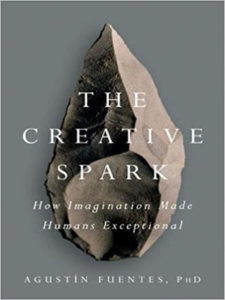 |
The Creative Spark: How Imagination Made Humans Exceptional
Author: Agustín Fuentes
Fuentes weaves fascinating stories of our ancient ancestors’ creativity, arguing that this key quality has propelled the evolutionary development of our bodies, minds, and cultures, both for good and for bad. It’s not the drive to reproduce; nor competition for mates, or resources, or power; nor our propensity for caring for one another that have separated us out from all other creatures.
|
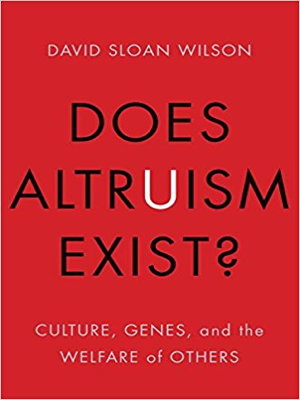 |
Does Altruism Exist?: Culture, Genes, and the Welfare of Others
Author: David Sloan Wilson
Does altruism exist? Or is human nature entirely selfish? In this eloquent and accessible book, famed biologist David Sloan Wilson provides new answers to this age-old question based on the latest developments in evolutionary science.
|
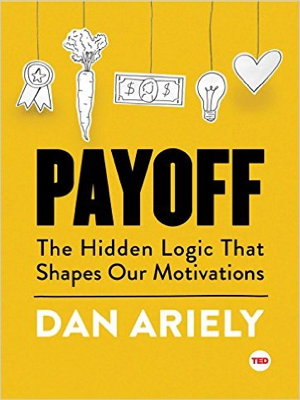 |
Payoff: The Hidden Logic That Shapes Our Motivations
Author: Dan Ariely
Payoff investigates the true nature of motivation, our partial blindness to the way it works, and how we can bridge this gap. With studies that range from Intel to a kindergarten classroom, Ariely digs deep to find the root of motivation—how it works and how we can use this knowledge to approach important choices in our own lives.
|
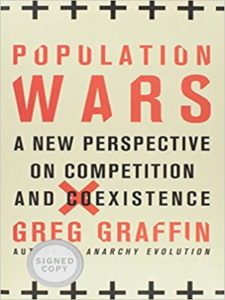 |
Population Wars: A New Perspective on Competition and Coexistence
Author: Greg Graffin
Population Wars is a paradigm-shifting book about why humans behave the way they do and the ancient history that explains that behavior. In reading it, you’ll see why we need to rethink the reasons for war, not only the human military kind but also Darwin’s “war of nature,” and find hope for a less violent future for mankind
|
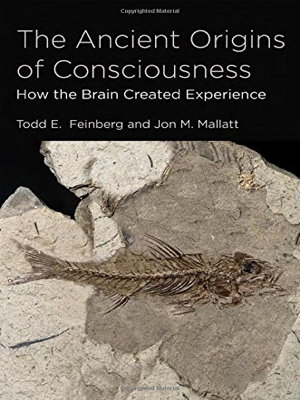 |
The Ancient Origins of Consciousness: How the Brain Created Experience
Author: Todd E. Feinberg
After assembling a list of the biological and neurobiological features that seem responsible for consciousness, and considering the fossil record of evolution, Feinberg and Mallatt argue that consciousness appeared much earlier in evolutionary history than is commonly assumed. Combining evolutionary, neurobiological, and philosophical approaches allows Feinberg and Mallatt to offer an original solution to the “hard problem” of consciousness.
|
 |
Primate Behavior and Human Origins
Author: Glenn King
This comprehensive introduction demonstrates the theoretical perspectives and concepts that are applied to primate behavior, and explores the relevance of non-human primates to understanding human behavior. Using a streamlined and student-friendly taxonomic framework, King provides a thorough overview of the primate order.
|
 |
Why Horror Seduces
Author: Mathias Clasen
Explaining the functional seduction of horror entertainment, this book draws on cutting-edge findings in the evolutionary social sciences, showing how the horror genre is a product of human nature. Through analyses of well-known and popular modern American works of horror–Rosemary’s Baby; The Shining; I Am Legend; Jaws; and several others–author Mathias Clasen illustrates how these works target evolved cognitive and emotional mechanisms; we are attracted to horrifying entertainment because we have an adaptive tendency to find pleasure in make-believe that allows us to experience negative emotions at high levels of intensity within a safe context.
|
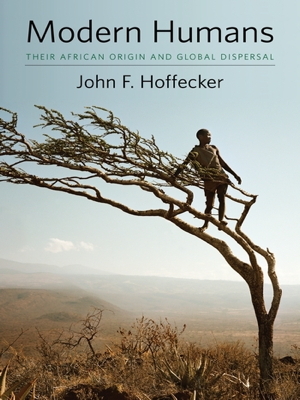 |
Modern Humans: Their African Origin and Global Dispersal
Author: John F. Hoffecker
Modern Humans synthesizes recent findings from genetics (including the rapidly growing body of ancient DNA), the human fossil record, and archaeology relating to the African origin and global dispersal of anatomically modern people. Hoffecker places humans in the broad context of the evolution of life, emphasizing the critical role of genetic and non-genetic forms of information in living systems as well as how changes in the storage, transmission, and translation of information underlie major transitions in evolution.
|
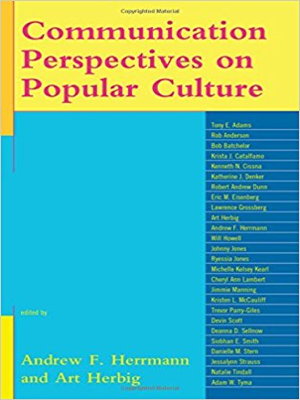 |
Communication Perspectives on Popular Culture
Author: Andrew Herrmann & Art Herbig
Popular culture helps construct, define, and impact our everyday realities. Communication Perspectives on Popular Culture brings together communication experts with diverse backgrounds, from interpersonal communication, business and organizational communication, mass communication, media studies, narrative, rhetoric, gender studies, autoethnography, popular culture studies, and journalism. The contributors tackle such topics as music, broadcast and Netflix television shows, movies, the Internet, video games, and more, as they connect popular culture to personal concerns as well as larger political and societal issues.
|
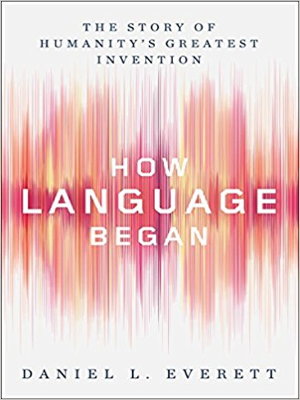 |
How Language Began: The Story of Humanity’s Greatest Invention
Author: Michael Davies
Mankind has a distinct advantage over other terrestrial species: we talk to one another. But how did we acquire the most advanced form of communication on Earth? Everett provides in this sweeping history a comprehensive examination of the evolutionary story of language, from the earliest speaking attempts by hominids to the more than seven thousand languages that exist today.
|
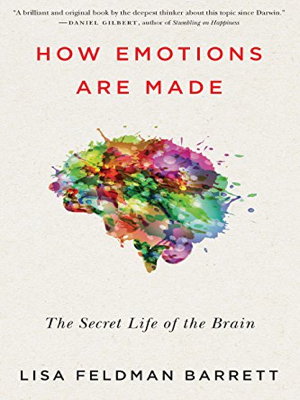 |
How Emotions Are Made: The Secret Life of the Brain
Author: Lisa Feldman Barrett
Why do emotions feel automatic? Does rational thought really control emotion? How does emotion affect disease? How can you make your children more emotionally intelligent? How Emotions Are Made answers these questions and many more, revealing the latest research and intriguing practical applications of the new science of emotion, mind, and brain.
|
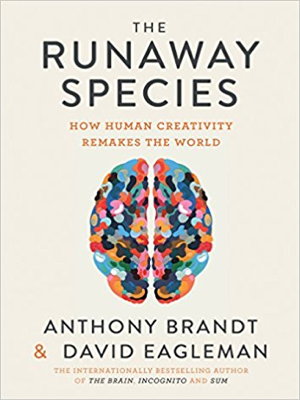 |
The Runaway Species: How human creativity remakes the world
Author: Anthony Brandt & David Eagleman
The Runaway Species is a deep-dive into the creative mind, a celebration of the human spirit, and a vision of how we can improve our future by understanding and embracing our ability to innovate. Anthony Brandt and David Eagleman seek to answer the question: what lies at the heart of humanity’s ability―and drive―to create?
|
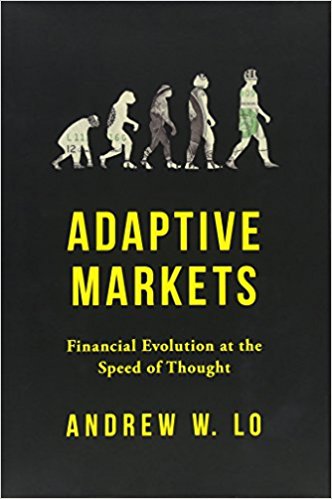 |
Adaptive Markets: Financial Evolution at the Speed of Thought
Author: Andrew Lo
Drawing on psychology, evolutionary biology, neuroscience, artificial intelligence, and other fields, Adaptive Markets shows that the theory of market efficiency isn’t wrong but merely incomplete. When markets are unstable, investors react instinctively, creating inefficiencies for others to exploit. Lo’s new paradigm explains how financial evolution shapes behavior and markets at the speed of thought―a fact revealed by swings between stability and crisis, profit and loss, and innovation and regulation.
|
 |
Inheritors of the Earth: How Nature Is Thriving in an Age of Extinction
Author: Chris Thomas
Human cities and mass agriculture have created new places for enterprising animals and plants to live, and our activities have stimulated evolutionary change in virtually every population of living species. Thomas argues that humans may well have raised the rate at which new species are formed to the highest level in the history of our planet.
|
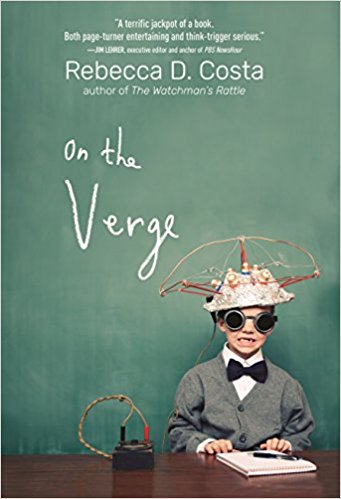 |
On The Verge
Author: Rebecca Costa
According to Costa, advances in Big Data, predictive analytics, genomics, artificial intelligence, and other breakthroughs have made it possible to pinpoint future results with mind-blowing accuracy – cracking the door to what Costa calls predaptation: the ability to adapt before the fact. Never before has the information needed to avert danger, get the jump ahead of others, or prepare for the inevitable been so clearly within grasp.
|























